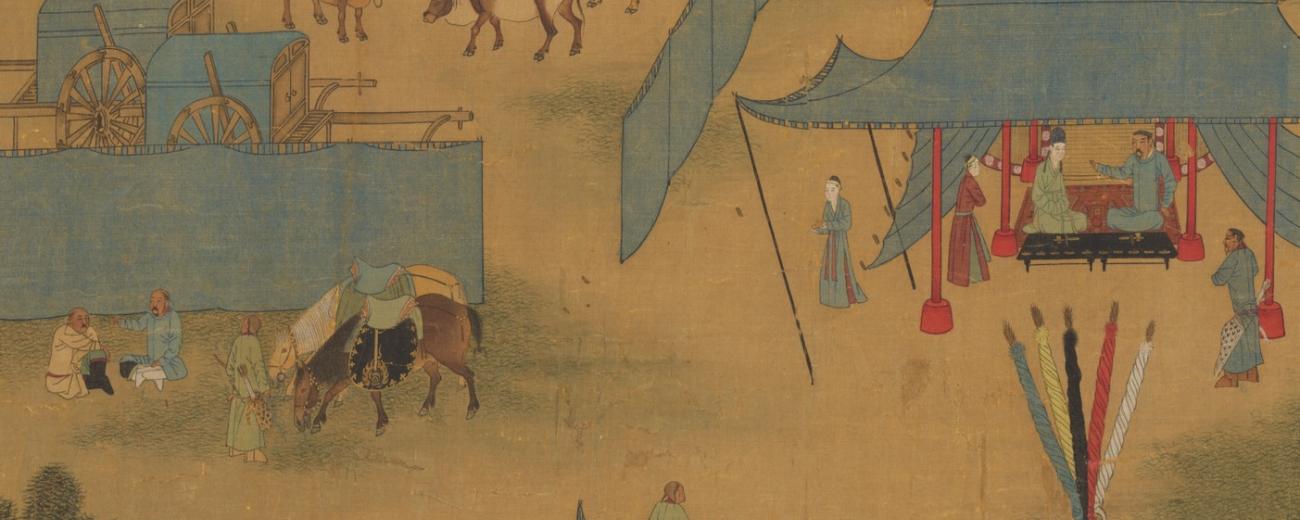
"The Whole Universe Was in One Mutton Stench!": Olfactory othering and sensory propaganda in medieval China

Key information
- Date
- Time
-
5:00 pm to 7:00 pm
- Venue
- SOAS, Paul Webley Wing
- Room
- S209
About this event
From the mid-eighth century, particularly after the outbreak of the An Lushan rebellion, Chinese literati began consistently associating the frontier peoples living along the northern and western borders with the smell of mutton.
At times, the smell simply morphed into a symbolic representation of these groups, turning them into the “mutton-reeking ones” (xingshan 腥膻). This motif proved enduring, finding renewed significance in the late imperial period.
This process, which I term “Olfactory Othering,” can be understood as a form of sensory based “propaganda” aimed at reinforcing ethnocultural boundaries. Effective “propaganda” relies on leveraging an established cultural framework that is receptive to the proposed ideas. Hence, rather than conducting a textual analysis of olfactory references, this talk will explore how this form of “propaganda” could have been persuasive and what broader insights it offers about medieval Chinese culture and society. Specifically, it will address contemporary conceptions about smells and their significance, such as their role in religious and medical thought as well as their long association with moral qualities.
I argue that sensory-based discourse carries a particular potency and immediacy, effectively tuning sensibilities and engaging emotions. Through this case study, I aim to demonstrate how attention to the senses, sensory experiences, and the manipulation of sensory perceptions reveals the deeper social, conceptual, and cultural fabric of the time.
Contact: Eleanor Newbigin (en2@soas.ac.uk)
Speaker: Flavia Xi Fang (SOAS)
Image: Unidentified artist, Eighteen Songs of a Nomad Flute: The Story of Lady Wenji [1973.120.3], handscroll; ink, color, and gold on silk, early 15th century. The Metropolitan Museum of Art, New York